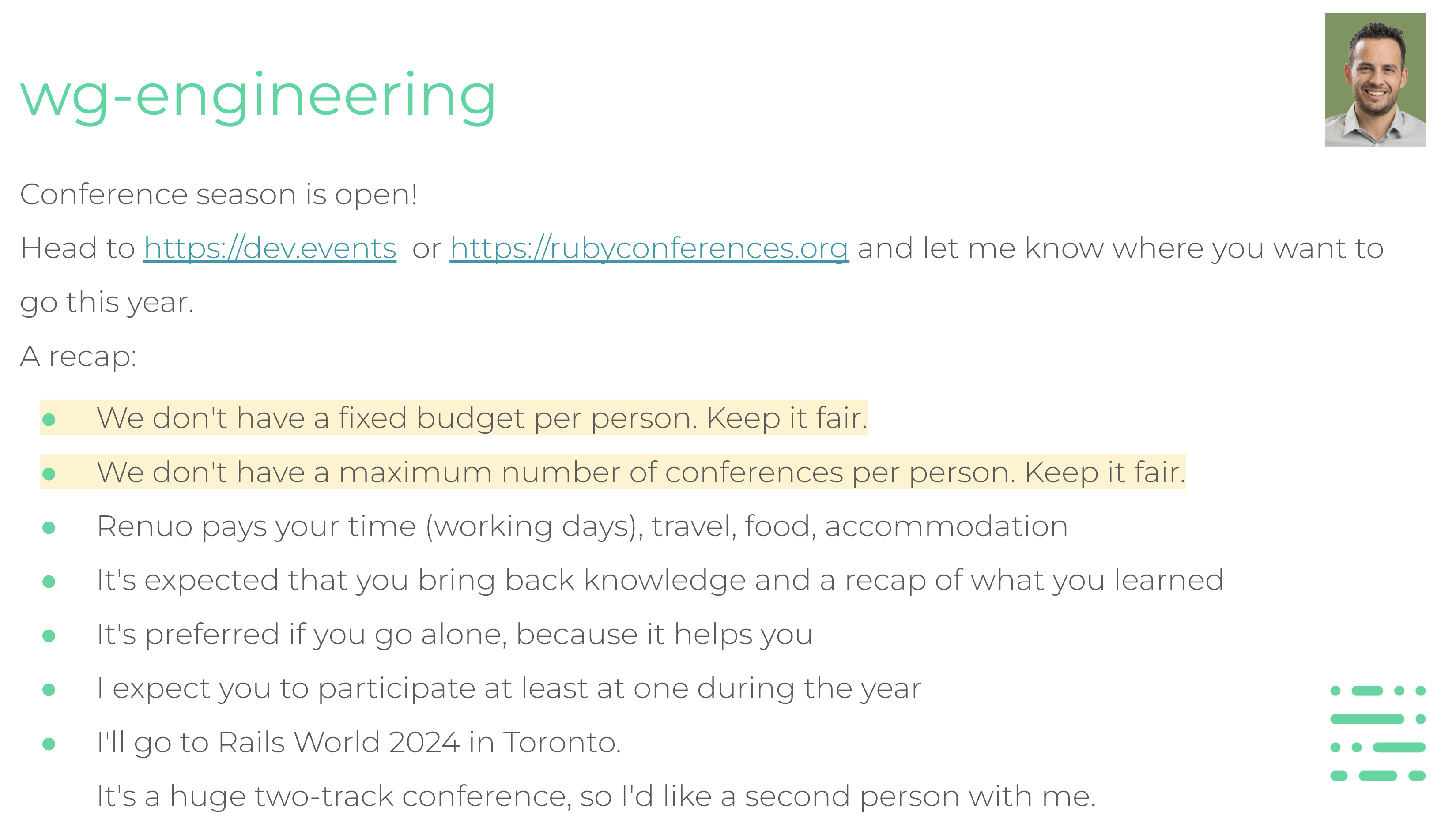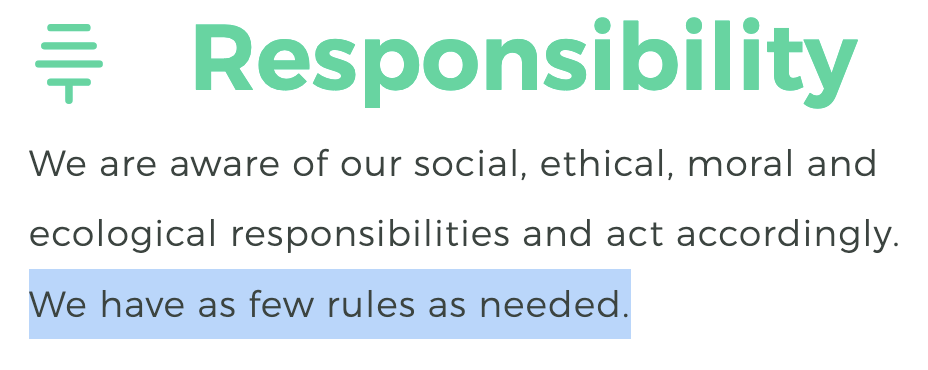Tech conferences are central to our personal growth: they teach us new skills, provide inspiration outside the box and offer excellent networking opportunities.
From a company perspective, the question arises as to how to organise the theme of the conferences. In particular, there is the question of who is allowed to attend how many conferences - after all, attending conferences incurs significant costs, which are usually borne by the company.
Many companies have detailed regulations that authorise conference attendance based on various factors. Relevant factors are, for example, the workload, the length of employment or the seniority level. From other examples, I know of complex authorisation processes that are necessary for participation.
We recently addressed this topic at Renuo. And it struck me how pragmatically this is handled:

Internal extract from our fortnightly company meeting
The first two points are particularly relevant:
We don't have a fixed budget [...]. Keep it fair.
We don't have a maximum number [...]. Keep it fair.
When I saw this slide (no, it wasn't mine), it filled me with pride. Why? The focus is not on fixed limits and rules, but on fairness and expectations.
And therefore: Active participation, transparency and empathy.
One of our five central Renuo values is responsibility.
The following sentence is explicitly mentioned in this value: ‘We have as few rules as possible’

The example above is a vivid realisation of this value.
I am convinced that a high level of ownership leads to more thoughtful employees and teams. I believe that a company with minimal rules and a focus on ownership will produce higher quality products, be more responsive to customer needs and ultimately provide a better customer experience. And I think that's a good thing!
So don't have too many rules. They would only be broken anyway. In the best case.
In the worst case: they are blindly followed. Or they are invoked in order to avoid taking responsibility. Or they are used to exercise power through the sheer knowledge of them.
Even if our radius of action within Renuo is limited, I believe that we can make the world a better place on a small scale. (Swiss) SMEs need to work on precisely this basic culture so that the world at large becomes a better place.













